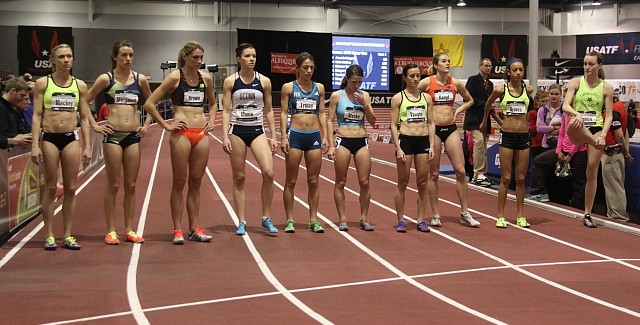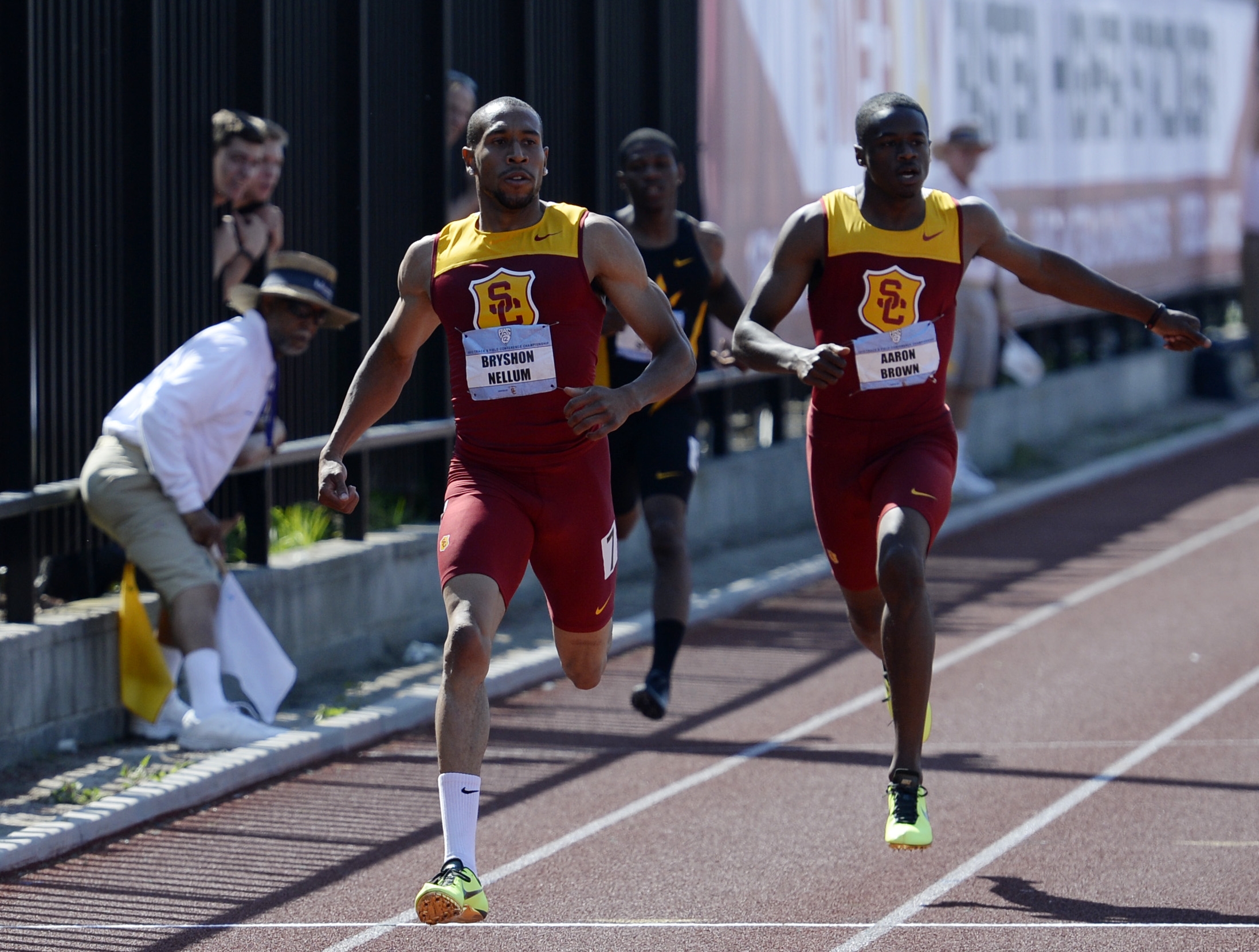The Weekend of Their Discontent
They came one by one to the microphones and tape recorders. Eager to talk about their race, but also more than willing to take a swipe at the organization that runs their sport.
The critiques were sharp, frequent and done with surprisingly little regard for any repercussions. Out of equal parts frustration and confusion, there wasn’t much the athletes held back over the two days in Albuquerque at the USA Indoor Championships.
“USA Track and Field needs to get their act together with that one,” Will Leer said about the controversial decision to disqualify Gabe Grunewald from the 3,000. Leer’s comments came on live television and without prompting.
On this weekend rather than eschewing controversy, athletes were lining up to take public shots at their governing body.
And the criticism didn’t just revolve around the Grunewald disqualification.
Later in the mixed zone, and with a USATF employee at his side, Leer took aim at the USATF again. This time for the abnormally large field size in the men’s 1,500.
“It’s absolutely ridiculous,” Leer said. “This whole shenanigans with the numbers in this meet really need to be worked out, I’m very disappointed with USA Track and Field and the way they handled it.”
Ryan Hill was incredulous after his teammate, Andrew Bumbalough, was disqualified in the 3,000. “Something weird going on there,” Hill said.
Even the location of the meet was fair game.
“Thanks to USATF’s brilliant decision making we’re running at 5,000 feet for God knows what reason,” Nick Symmonds said after placing third in the 800.
By Monday afternoon the issue that dominated the discussion at the USA Indoor Championships was resolved. Jordan Hasay withdrew her protest and Grunewald was reinstated as the champion of the women’s 3,000.
It was a sudden resolution to a protracted drama that began when Grunewald made contact with Hasay in final lap on Saturday. Since then, Grunewald received almost universal support from her fellow athletes who felt that the disqualification was unwarranted and the appeals process of the USATF lacked clarity.
“As an athlete, I like to have confidence in my sport. It’s bad for the US because we’re not sending our champion. It’s a shame. It’s a disappointment. It makes it less fun,” Katie Mackey told Runner’s World before the decision was made to reinstate Grunewald.
At times it seemed there was greater focus on criticizing the governing body than on the competition inside the Albuquerque Convention Center.
The reaction from athletes and coaches on Twitter was just as sharp. The words “inept” “disgrace” and “corruption” were surely trending in the track and field universe.
While the Nike Oregon Project played a major role in both the Grunewald and Bumbalough disqualifications, the scrutiny mainly fell on the USATF and the athletes growing perception that the rules governing the sport are arbitrary at best and unfair at worst.
Compounding the problem was the lack of transparency. Throughout the weekend, information was few and far between. Though Grunewald’s disqualification was overturned there has still been no explanation of the “additional video evidence” that was used to reopen the protest after the Jury of Appeals ruled in Grunewald’s favor twice. Jordan Hasay withdrawing was a lifeline for USATF, but it did little to assuage the concerns that the sport is being governed by two (or three, or four) sets of rules.
Perhaps there has been push back like this before. Symmonds and others have been increasingly vocal about their displeasure with USATF in the past few years. But this seemed different. The depth and the breadth of the complaints signaled that there is frustration that a simple sport is being convoluted by opaque rules and rulings.
The USATF had a somewhat similar embarrassment at the 2012 Olympic Trials when they did not have a tiebreaker procedure in place to separate the dead heat between Jeneba Tarmoh and Allyson Felix in the women’s 100. That issue dragged on for a week before Tarmoh withdrew on the day of the runoff.
But that was two years ago and since then the appetite for information has grown even greater. The unwillingness to discuss the important details of controversial decisions seems untenable and impacts the core of USATFs credibility. If this weekend was any indication, American track and field athletes are more than willing to put every USATF decision under the microscope.
“There’s a lot of people who want to see things change in the sport,” Grunewald said on Sunday evening. “I just think people are getting sick of it. And so there’s this feeling that this needs to stop.”
-
Jordan Hasay’s gracious withdrawal has resolved the question of the Women’s 3000m National Championship and representation on TeamUSA.
However, the larger questions were those of process in submitting and ruling on protests and potential infractions observed by officials. The way process was handled in this case and for Andy Bumbalough in the men’s championship was simply a disgrace.
In addition to requiring competent adherence to procedures, transparency of decision making and accountability of decision makers in the process, let us not forget that most standards of ethics require avoidance of even the _appearance_ of impropriety or undue influence.
Additionally, it seems reasonable that there be a right for an athlete and their coach to hear the contents of any protest involving them, be able to fully examine all evidence presented, and to have the opportunity to rebut the evidence before a final decision is made.



















Comments